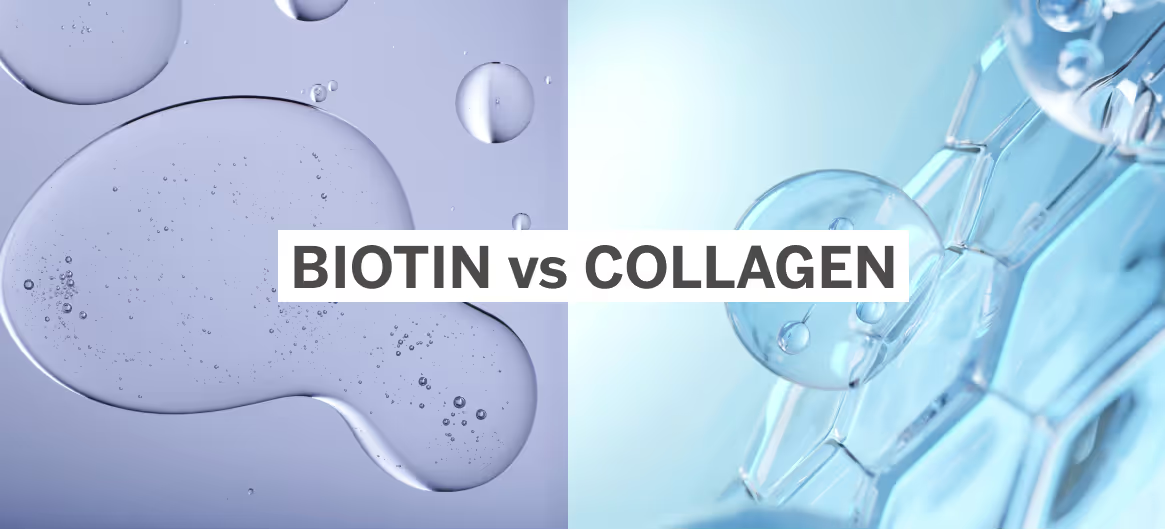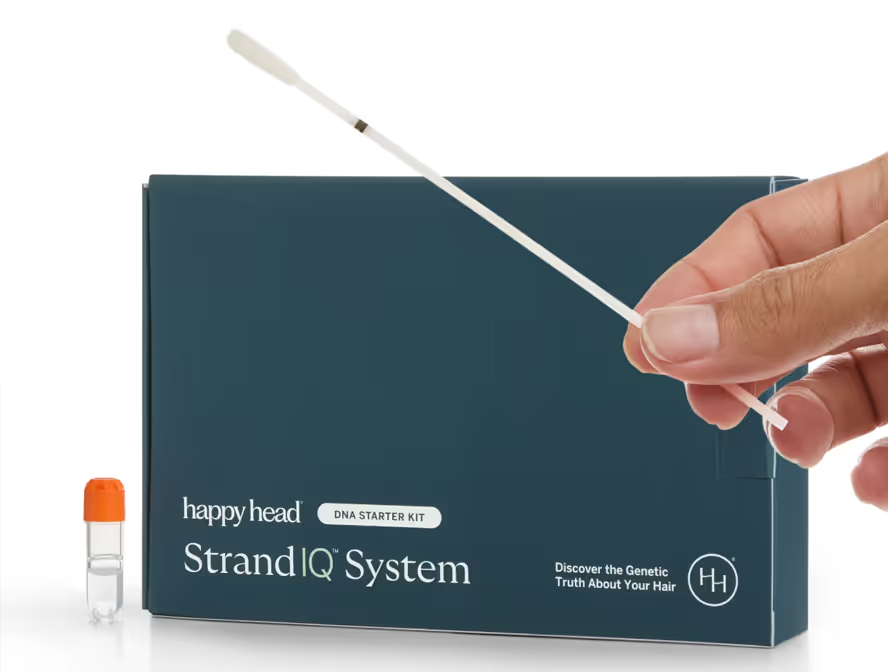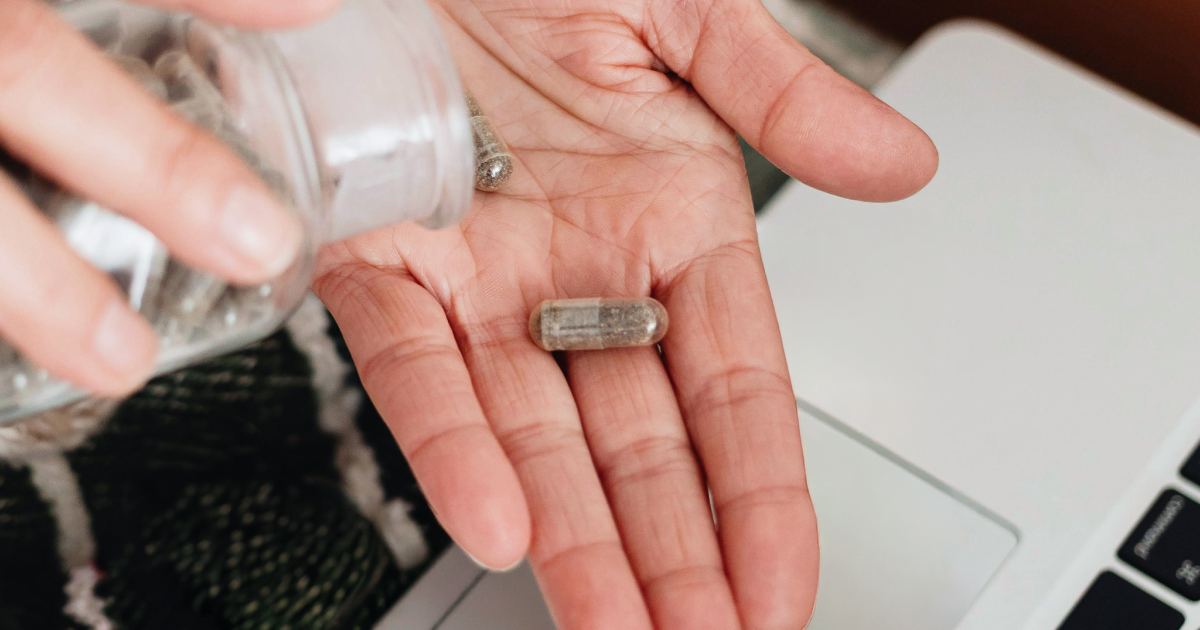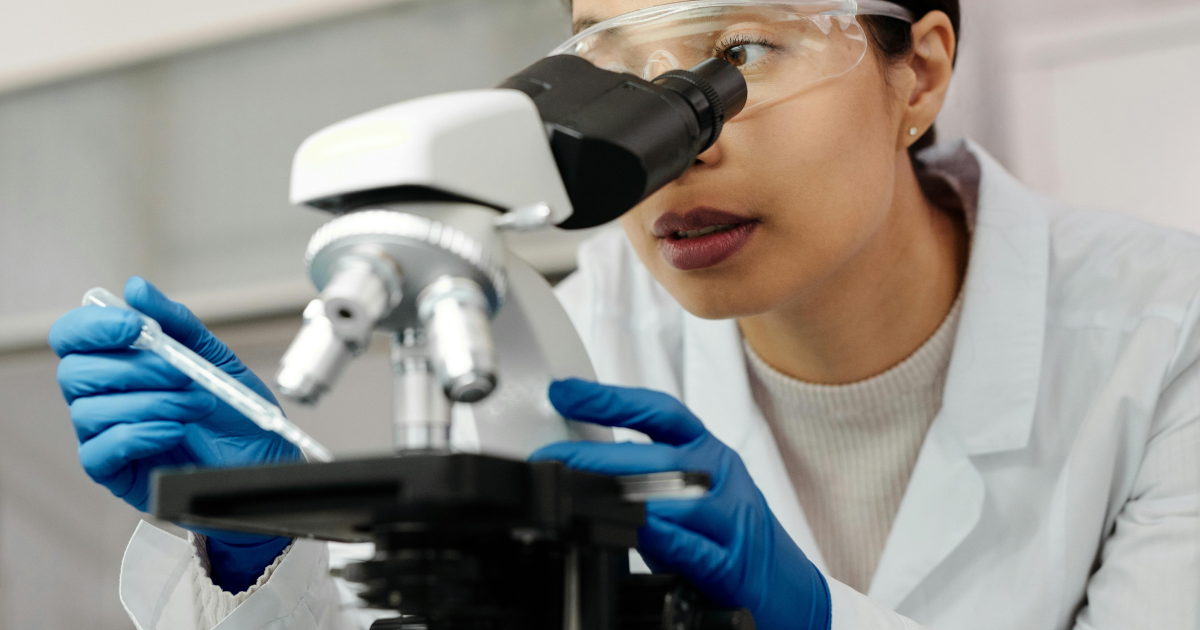Keratin vs. biotin: which is better for hair health? Many people turn to these nutrients to improve strength, shine, and overall hair quality, but they work in different ways.
Biotin supports the body’s natural production of keratin from within, while keratin treatments and supplements help reinforce and smooth the hair externally.
Understanding the benefits, limitations, and appropriate use of each can guide you toward the most effective approach for achieving stronger, healthier, and more resilient hair.
Biotin Basics
Biotin, also known as vitamin B7 or vitamin H, is a water-soluble B-complex vitamin that helps convert food into energy.
Biotin supports the health of hair, skin, and nails by assisting enzymes involved in keratin production, making it an important nutrient for overall hair strength and growth.
What Biotin Does
Biotin acts as a coenzyme that helps break down fats, proteins, and carbohydrates into usable energy. It is essential for metabolic processes and for supporting the health of skin, hair, and nails.
Because it influences keratin infrastructure, biotin helps maintain cellular function and supports the structural integrity of rapidly growing tissues.
How Biotin Supports Healthy Hair
Biotin supports hair by aiding the production of keratin, the protein that forms the structure of each strand. When levels are sufficient, hair may appear stronger, shinier, and less prone to breakage.
While not a cure for hair loss, biotin ensures the body has the nutritional foundation needed for optimal hair health and resilience.
Signs of Deficiency
Biotin deficiency is rare but can cause noticeable changes in hair, skin, and nails. Common signs include thinning hair, brittle nails, dry skin, and sometimes rashes around the eyes, nose, or mouth.
Severe deficiency may also cause fatigue, mood changes, or neurological issues. Risk factors include pregnancy, certain medications, and excessive alcohol intake.
Note that not everyone processes biotin efficiently. Reduced activity of the enzyme biotinidase due to genetic variations can result in low functional levels that mimic deficiency signs.
Happy Head’s StrandIQ DNA Kit provides nutrient insights and identifies genetic predispositions that are affecting your hair’s health. The first month of customized treatment based on results is free with purchase.
Keratin Basics
Keratin is a tough, fibrous protein that forms the structural building block of hair, skin, and nails. Unlike biotin, which helps the body produce keratin, this protein itself provides strength and protection.
Keratin can be naturally produced by the body or applied externally through treatments and hair care products.
Types of Keratin
There are two main types of keratin: alpha-keratin and beta-keratin. Alpha-keratin, found in human hair and skin, provides flexibility and durability, while beta-keratin, found in animals such as birds and reptiles, is harder.
Within hair, keratin proteins are arranged in a protective matrix, giving strands their resilience and helping resist damage from heat, chemicals, and styling.
Does Keratin Help With Hair Growth?
Keratin itself does not stimulate new hair growth at the follicle level. Instead, it strengthens existing hair strands, reducing breakage and improving appearance. By making hair smoother and less fragile, keratin may help hair look thicker and healthier.
True growth, however, depends on internal factors such as genetics, hormones, and overall scalp health.
Keratin Treatments
Keratin treatments are salon procedures designed to smooth frizz and temporarily strengthen hair. They work by infusing keratin and other compounds into the hair shaft, sealing it with heat to create a sleek, shiny finish.
While results can last several months, treatments often contain formaldehyde or similar chemicals that may cause scalp irritation or hair damage with repeated use.
Biotin and Keratin Benefits
Both biotin and keratin contribute to healthier-looking hair, but they work in different ways.
- Biotin works internally, supporting the body’s natural keratin production, energy metabolism, and cellular health. This ensures hair, skin, and nails have the nutrients needed for strength and resilience.
- Keratin reinforces hair externally, reducing frizz, smoothing texture, and decreasing breakage.
Together, they create a foundation for stronger strands that look shinier and fuller. While neither guarantees new hair growth, combining nutritional support with structural reinforcement can significantly improve hair quality.
Is Biotin or Keratin Better for Hair?
Whether biotin or keratin is “better” depends on your goals. If you want to support hair health from the inside out, biotin is more beneficial, especially for those with deficiencies. It helps maintain the natural building blocks of strong hair.
Keratin, however, works best as an external treatment, repairing and protecting existing strands from damage.
Since they address different needs—nutritional versus structural—many people benefit from both. A dermatologist can help determine whether dietary support, topical treatments, or a combination approach is most appropriate for your specific hair concerns.
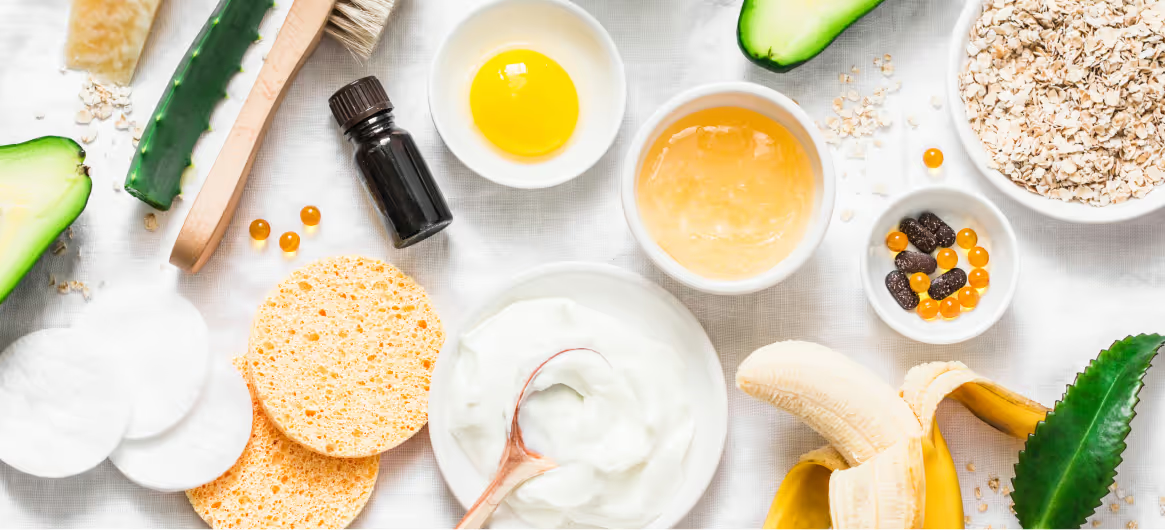
Dietary Sources
Diet plays an essential role in maintaining healthy hair, skin, and nails. Since the body cannot produce biotin on its own, it must be obtained through food.
Eating a balanced diet that includes biotin-rich foods and nutrients that promote natural keratin production provides the foundation for stronger, more resilient hair.
Biotin-Rich Foods
Biotin can be found in a variety of everyday foods, making deficiencies uncommon in healthy individuals. Some of the best sources include:
- Egg yolks
- Organ meats (liver, kidney)
- Nuts and seeds (almonds, sunflower seeds, walnuts)
- Legumes (soybeans, peanuts, lentils)
- Whole grains
- Bananas and avocados
- Salmon and sardines
Including these foods in your diet regularly helps maintain optimal biotin levels, supporting keratin production and overall hair strength.
Foods That Support Natural Keratin Production
The body naturally produces keratin, but certain nutrients enhance this process. Protein-rich foods, in particular, are essential since keratin is a structural protein. Examples include:
- Lean meats, poultry, and fish
- Eggs (a source of both protein and biotin)
- Dairy products
- Dark leafy greens (kale, spinach, broccoli)
- Sweet potatoes and carrots (rich in vitamin A)
- Citrus fruits and berries (vitamin C for collagen support)
These foods supply amino acids, vitamins, and minerals that fuel keratin synthesis and strengthen hair from within.
Biotin and Keratin Supplements
Supplements are often marketed for hair growth, but their benefits vary depending on individual needs.
Biotin supplements may help those with deficiencies or brittle nails, while keratin supplements are aimed at strengthening hair structure. Both can be useful in certain cases, but they should ideally be taken under professional guidance.
Biotin Supplements
Biotin supplements are widely available as standalone tablets or included in “hair, skin, and nail” formulas. They may be beneficial for individuals with a true deficiency, which can cause thinning hair, brittle nails, and skin issues.
However, most people obtain enough biotin through diet, so supplementation is not always necessary. In rare cases, excessive biotin intake can interfere with lab tests, making medical guidance important before beginning supplementation.
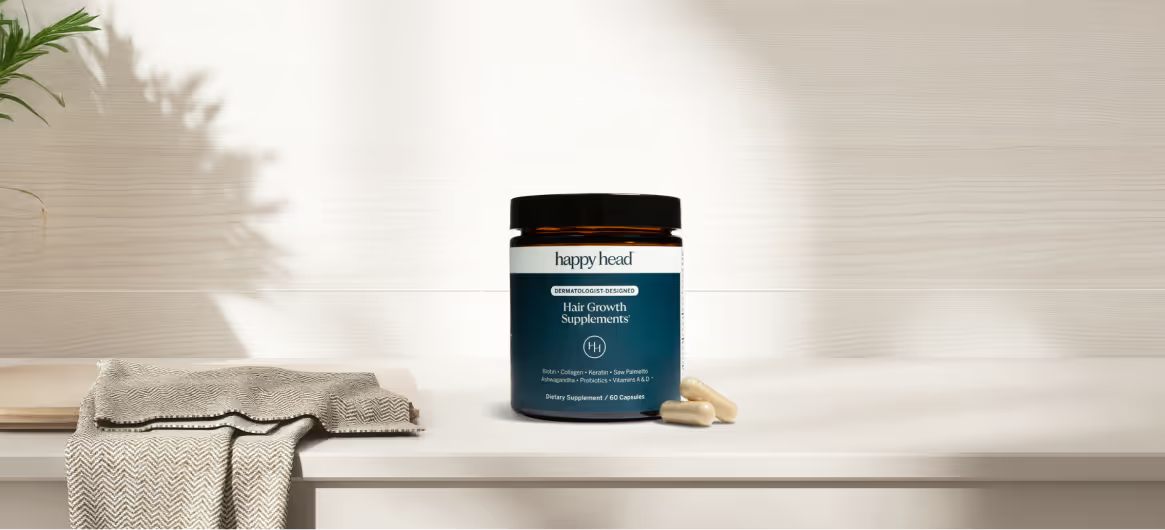
Keratin Supplements
Keratin supplements are designed to reinforce hair structure from the inside. They often contain hydrolyzed keratin, a broken-down form that is easier for the body to absorb. While some users report improved hair strength and reduced breakage, research is limited compared to biotin.
Because keratin is a protein, taking too much may strain the kidneys or digestive system. For this reason, supplements should only be used when needed and ideally under a doctor’s supervision.
Happy Head’s dermatologist-designed Hair Growth Supplements contain both biotin and keratin as well as collagen, saw palmetto, probiotics, ashwagandha, and vitamins A and D to support visibly thicker and healthier hair.
Safety and Side Effects
While biotin and keratin can support healthier-looking hair, both supplements and treatments come with considerations. Most people tolerate them well, but overuse or misuse may cause unwanted effects.
Understanding the safety profile of each option is important before deciding whether supplementation or treatment is right for you.
Biotin Safety
Biotin is generally safe because it is water-soluble, and excess amounts are excreted through urine. However, very high doses may cause skin rashes or digestive upset or interfere with lab results, especially thyroid and cardiac tests.
Most people do not need supplements beyond the recommended daily intake. Consulting a doctor before starting biotin helps ensure safe and appropriate use, especially for people with underlying health conditions or those scheduled for blood work.
Keratin Supplement Safety
Keratin supplements, often made with hydrolyzed keratin, are usually well-tolerated when taken in moderation. However, because keratin is a protein, excessive intake can put stress on the kidneys and digestive system.
Some people may experience bloating, nausea, or constipation. Since scientific evidence on their long-term safety is limited, it is best to use keratin supplements only under medical guidance, particularly for individuals with kidney disease or other chronic conditions.
Keratin Treatment Safety
Keratin hair treatments can provide smooth, frizz-free results, but they often involve chemical additives such as formaldehyde or formaldehyde-releasing agents.
These may cause scalp irritation, allergic reactions, or respiratory issues during application. Long-term or repeated use may weaken hair rather than strengthen it.
Choosing a salon that uses formaldehyde-free products and ensures good ventilation during the procedure helps reduce risks. It is also important to avoid excessive heat styling after treatments to preserve hair health.
Keratin vs. Biotin: Making the Right Choice
Deciding between biotin and keratin depends on your hair goals, overall health, and lifestyle. Biotin supports keratin production internally, while keratin treatments and supplements strengthen hair externally.
Budget, safety, and long-term goals should all be considered before choosing. For those experiencing hair loss or significant thinning, it’s best to consult a dermatologist, who can identify underlying causes and recommend evidence-based solutions.
Ultimately, when comparing keratin vs. biotin, the right option comes down to your individual needs.
Talk to a board-certified dermatologist to discuss your goals and find the solution that is best for you.
Frequently Asked Questions
Which is better, keratin or biotin?
Keratin and biotin serve different purposes. Biotin supports the body’s natural process of producing keratin, which is essential for strong hair and nails. Keratin itself strengthens hair structure externally. The “better” option depends on whether you need internal support or external smoothing.
Should you take biotin and keratin together?
Yes, biotin and keratin can be taken together because they complement each other. Biotin supports natural keratin production within the body, while keratin treatments or supplements directly target hair strength. Using both may help improve resilience, shine, and overall hair quality.
Why is biotin not recommended for hair growth?
Biotin isn’t universally recommended because true deficiencies are rare, and excess supplementation has not consistently been proven to boost hair growth in healthy individuals. While biotin supports keratin production, most people already get enough from their diet, making supplements unnecessary unless a deficiency is present.
Does biotin with keratin help hair growth?
Biotin and keratin together may support healthier-looking hair, but they do not directly trigger new growth. Biotin aids keratin production inside the body, while keratin treatments reinforce the hair shaft. The combination can improve strength and reduce breakage, making hair appear fuller over time.





